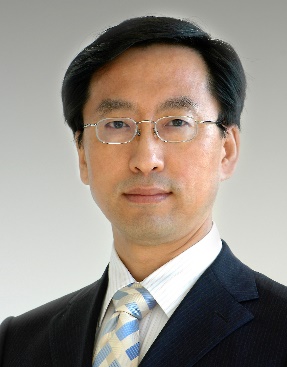CAS Academician Zhang Jie Wins 2021 Future Science Prize
Date:12-09-2021 Print
Future Science Prize announced the winners of 2021 on September 12. Prof. Zhang Jie, Academician of Chinese Academy of Sciences (CAS), won the Future Science Prize in physical sciences "for his development of laser-based fast electron beam technologies and their applications in ultrafast time-resolved electron microscopy and fast ignition for research towards inertial confinement fusion".

CAS Academician Zhang Jie
Prof. Zhang Jie is one of the pioneers in developing methods for efficient generation of controlled, high-intensity fast electrons (~100 keV to 10 MeV) through tera- to peta-Watt laser beams. Since the 1990s, leading a strong team of collaborators from the Institute of Physics (IOP), Chinese Academy of Sciences (CAS) and Shanghai Jiao Tong University, he has made a series of major breakthroughs with fast electron beams, including efficient generation of nonthermal electrons, tuning the electron beam energy with lasers, realization of highly directional electron emission, and world records on temporal resolution of electron beam imaging.
The precisely controlled high-intensity fast electrons generated by Prof. Zhang’s team have enabled a range of other important scientific explorations. For example, they have developed an MeV ultrafast electron diffraction and imaging facility, and demonstrated sub-Angstrom spatial resolution and a record 50 femtosecond temporal resolution. Very recently, they used ultrafast laser-field to successfully manipulate electronic dimensionality of quantum materials and observed signatures of novel phase transitions induced by light. Furthermore, the cutting-edge technology has helped the team design a more compact and efficient high-energy particle accelerator. Simultaneously, they have also achieved single molecule imaging with ultrafast electron diffraction.
Prof. Zhang’s research on fast electron beams was initially driven by the prospect of inertial confinement fusion (ICF), a process, if realized, could provide unlimited energy supply for the human kind. The new electron source provides a crucial tool for ICF with fast ignition, a concept pioneered by Prof. Zhang. The fast ignition approach disentangles fuel ignition from compression, allowing optimization of these two processes independently while avoiding instabilities.
Future Science Prize is a privately funded science prize established by a group of renowned scientists and successful entrepreneurs in 2016, aiming at recognizing scientific breakthroughs and innovations in the Greater China region (including Mainland China, Taiwan, Hong Kong and Macau). The Prize is given in three categories, namely Life Science Prize, Physical Science Prize, and Mathematics and Computer Science Prize. Laureates of the Prize will be selected regardless of their nationality, as long as their achievements are original and innovative, have long-term significance or have passed the trial of time. Prof. Kwok-Yung Yuen and Prof. Joseph Sriyal Malik Peiris won the 2021 Prize in life sciences. Prof. Simon Sze won the 2021 Prize in mathematics and computer science.


